- Home
- Tony Parsons
Catching the Sun Page 3
Catching the Sun Read online
Page 3
The two men clinked glasses. I went to the bar and watched Jesse playing Connect Four. He was playing with a different girl now. The prettiest girl in the place, who wore jeans and a T-shirt and served behind the bar. They had already gathered an audience. Every time it was her turn, the girl slammed small blue discs into the slots on the board. Jesse laughed, shook his head.
‘The reason they always win is because they are allowed to set the pace,’ he told me, dropping a red disc into a slot with slow deliberation. ‘And you have to play at your own pace, not theirs,’ Jesse said.
The gibbon hopped up on to the bar and straightened the rim of its Stetson. It seemed fascinated by Jesse’s ground-breaking Connect Four technique. Girls climbed on bar stools to get a better look at the action. It was like watching James Bond blowing them away at baccarat at a casino in Monte Carlo.
The wall behind them was covered in photographs and I wandered over to it. I didn’t see any of the faces in the bar in the photographs. These were all the girls who had worked here in the past, and the men who they had known. Everybody was gone now. Years of thin women with smiling faces and the men, older and whiter and drunker, all mugging for the cameras, all seeming to have the night of their lives. I wondered what had happened to them, all those girls and all those men, and if they missed the Bangla Road and the gibbon in the cowboy hat. Although I guessed it must have been a different gibbon back then.
A roar from the bar. Jesse had won again. Now a small stout woman in her forties was rolling up her sleeves and taking her seat opposite Jesse.
‘Oh no,’ Jesse laughed, his pale face shining like the moon in that unlit bar. ‘Secret weapon. They’re wheeling out the mamma-san.’
‘I beat you,’ the mamma-san said, with no trace of humour in it. ‘I beat you good, white boy. Oh – such a white boy, you are, I never saw such a white boy.’
The mamma-san reached for Jesse’s face and took a fistful of his ghostly flesh in one of her small brown hands. The No Name Bar girls laughed with appreciation.
‘Want a bet?’ Jesse said.
‘Yes, I want bet,’ the mamma-san said, and the girls all cheered.
Jesse rolled his eyes.
‘But what do you have that I could possibly want?’ he said, and the gibbon’s mouth stretched in a huge and mirthless smile.
When I went back to the table Baxter was entwined with girls. Their thin brown limbs snaked around his waist, his neck, his khaki shorts. The girls chatted among themselves, examined their nails, and stared into the glow of their phones while absent-mindedly rubbing his old didgeridoo. And now it was Baxter who had his cheque book at the ready. A girl approached Farren but he held up his hand. He had lovely manners. She shrugged, smiled and walked away.
‘Explain one more time,’ the Australian said. ‘About setting up a Thai company that I control.’
The thing I was realizing about that Phuket, the Phuket of bars and beer and girls – the hundreds of bars, the thousands of girls, the ocean of cold Thai beer – was that it offered more than anyone could ever possibly want or need. And although, as Jesse said, I was fresh off the banana boat, even I had already worked out that they were not really selling sex on the Bangla Road.
They were selling dreams.
‘Come on, mate,’ Jesse shouted. ‘We’re going home.’
I looked up but he wasn’t talking to me. Jesse slid from his stool and took the hand of the gibbon.
The creature adjusted its cowboy hat and fell into step beside him, its free arm trailing, and there was much wailing and moaning among the bar girls as the pair of them disappeared through the curtain that covered the door.
The mamma-san spoke sharply to the girls. You didn’t need any Thai to know she was telling them that Jesse had won the gibbon fair and square and they should get back to work. One of the girls wiped her eyes with her fingers and started packing away the Connect Four. I headed for the door.
Out on the street Jesse and the gibbon were already settled in the back of a tuk-tuk. The gibbon stared straight ahead with its depthless black eyes, unsentimental about leaving its place of work, although holding on to its hat as if fearing it might blow away on the ride home. I called Jesse’s name but he didn’t hear me, and the tuk-tuk puttered off down the Bangla Road, trailing smoke.
Back inside the bar Farren and Baxter were shaking hands.
‘We’re going to clean up!’ Baxter bawled over the song they were playing and when he stood up to embrace Farren his sturdy legs overturned a table of glass and beer and overpriced fruit juice.
It was ‘Highway To Hell’ by AC/DC.
I recognized it now.
It felt very early when I left them to it in the bar, but by the time I got back to Nai Yang it seemed very late, as though everyone around here had gone to sleep hours ago.
The lights were off in the Botans’ house. In our place there was a light left on for me. I wheeled the Royal Enfield into the shed as quietly as I could and stood there in the moonlight, smelling the clean air, just a hint of sulphur from the mangroves, and hearing the insect-drone of the traffic.
Our house was still unfamiliar to me and in the darkness I held out a hand to guide myself, the hard wood of the wall panels cool and smooth and somehow comforting against the palm of my hand. In the bedroom I undressed quickly in the darkness. When I curled up against Tess she murmured and pressed herself against me and I buried my face in her hair.
‘Good day?’ I said softly.
‘They’re all good days,’ said Tess. ‘How about you? Is everyone really friendly? Did you meet anyone you like?’
‘There’s an English kid called Jesse. He’s full of himself but I like him.’
I didn’t tell her about the gibbon and I didn’t tell her about the Australian who tried to strangle my boss and I didn’t tell her about the little Muslim girl on a motorbike. Because I wanted it to be true – for all of the days to be good days. But it felt like there was a lot I couldn’t tell Tess if I wanted her to keep her smile. And I wanted that more than anything.
‘You need to talk to Farren about our visas,’ she said, more asleep than awake now. ‘Your work permit. All of the paperwork. We need to get that sorted.’
‘Tess?’
‘What?’
‘Nothing. Close your eyes, angel.’
Soon I felt her slip into sleep but I stayed awake for a long time, curled up against her, my face in her hair, listening to the distant buzz of the motorbikes out there in the wide wild night.
4
The pick-up truck woke me just after dawn.
I could hear the diesel engine rumbling right outside our bedroom window as it slowly backed up our narrow road.
‘Somebody must have the wrong place,’ I told Tess, pulling on my jeans.
I went out on the porch. The open back of the pick-up truck was piled impossibly high with pallets of plastic bottles of water. The pallets were stacked higher than the cabin. It was one of those sights you saw all the time in Phuket – loads that seemed to violate every law, especially the one about gravity. The driver’s face frowned with concentration as he carefully reversed past a banana tree.
Mr and Mrs Botan came out to watch. I looked at them and smiled, hoping they would take responsibility for the delivery. But Mrs Botan just shouted something at the driver. She seemed to be telling him to be more careful with our banana tree. Some of the thick leaves, still shiny with rain, had already been ripped off by the truck and littered the road.
Tess came out of the house, tucking a T-shirt into her shorts. The driver seemed to know her. He leaned out of his window, holding out an invoice, tapping it for a signature.
‘Not this much!’ she said, shaking her head at the mountain of mineral water, and I heard the sharp tone of the teacher she was back in England. ‘I didn’t order this much!’
The water came in cellophane-wrapped six-packs – big bottles, 1.5 litres, with a dozen of the big six-packs on every cardboard pallet, and another layer
of cellophane over that, and too many of the pallets to count.
‘Reckon we’ve got enough water, Tess?’ I smiled, and she shot me a look before ripping the invoice from the driver’s hands. He was talking in Thai, very insistent now, and Tess was standing up to him, staring hard at the paperwork. ‘But I can’t read this,’ she said. ‘It’s all in Thai.’
Rory and Keeva came slowly out of the house, still in their pyjamas, still rumpled and sleepy from bed. We all stared at the pick-up truck.
‘I wanted a twenty of the six-packs,’ Tess was telling the driver. ‘Not all these – what do you call them?’
‘Pallets,’ I said.
It was getting heated. Mr and Mrs Botan came over to help, or perhaps just to get a better view. The old man looked at the invoice and nodded thoughtfully.
‘He is right,’ Mr Botan said. ‘You ordered a lot of water.’
Mrs Botan was more concerned about Tess.
‘Jai yen,’ she told Tess. ‘Jai yen. Keep a cool heart.’
Tess and I looked at each other. We had never heard of jai yen before. We had not heard the words or the concept. Where we came from, great importance was placed on being warm-hearted. But in Thailand they believed in the opposite. They believed in jai yen. Mrs Botan took Tess by the hand and gently stroked her arm, smiling as she taught her about the benefits of a cool heart.
‘All right,’ Tess said, and she nodded curtly at the driver. ‘My mistake. Sorry.’
‘Good,’ Mrs Botan said.
We kept the water. We kept a cool heart. The neighbours and the driver, all smiles now, helped us to unload it. I moved the motorbike out of the way and we stored it in the shed that passed for a garage.
‘Mai pen rai,’ the old lady told Tess. ‘Never mind. The water will keep. Never mind, never mind.’
When the water was unloaded, Tess and Mrs Botan and the children went inside our neighbours’ house for breakfast while I stood outside with Mr Botan as he smoked a cigarette. You could tell that he wasn’t allowed to do it in their house. The sky rumbled and cracked somewhere out to sea. You could see the storm clouds gather and the lightning flash.
‘Will it rain again soon?’ I asked him.
Mr Botan considered the sky. He took a long pull on his cigarette.
‘It hasn’t rained since yesterday,’ he said.
I digested this information, and wondered what it could possibly mean. We watched the sky in silence for a while.
‘How long do you stay?’ Mr Botan asked.
‘What?’ I said, shocked by the question. Wild Palm had a year’s lease on our little villa, and Farren had told me with a smile that Mr Botan had insisted on half of the money in advance. But I knew my neighbour was not asking me about leases or rent money.
‘I wonder how long you stay,’ Mr Botan said, and it didn’t sound so much like a question now, more of a reflection.
‘Well, we’re staying,’ I said. ‘We have no plans to go back to England. There’s nothing for us there.’
I said it with great conviction, but Mr Botan did not look persuaded. He smiled with a bashful courtesy, as if he had heard it all before, and examined his roll-up with great interest.
I live here, I thought. This is my home now.
But I remembered Baxter’s hands on Farren’s throat, and the lies that Jesse had told so easily on the phone, and the lie that I had been forced into myself the moment our plane touched down and they had asked me about the purpose of my visit, and so I did not dare to say it aloud.
‘Your boss,’ he said.
‘Farren,’ I said.
‘Many men like him in Thailand.’
‘Businessmen,’ I said. ‘Many foreign businessmen?’
‘England rich country,’ Mr Botan said. ‘Thailand poor country.’
I laughed and nodded.
‘But there are plenty of poor people in England,’ I said. ‘I was one of them.’
‘Ah,’ said Mr Botan, smiling shyly at the sky, as if we had gone too far. ‘Ah.’
Mr and Mrs Botan. Our neighbours lived from the sea. He caught fish on his longtail and she cleaned it, cooked it and served it on the beach at the Almost World Famous Seafood Grill. He wore the baggy trousers of the Thai fisherman and she was usually dressed in a white apron, as if she was coming straight from a kitchen or soon returning to one. Their lives centred on the few miles of sea and land around Hat Nai Yang, and right from the start they wanted us to see its secret beauty.
‘Many bad people come to our area at this time of the year,’ Mr Botan told Tess the day after the mountain of water had arrived. He rubbed his hard old hands with anxiety. ‘They take great advantage of poor stupid farang,’ he said. ‘Make easy money from the foreigners. Sell them shells. Leaky boat rides. Massage.’ He shot me a meaningful man-to-man look, and lowered his voice to an embarrassed whisper. ‘Love pills,’ he murmured.
Tess looked up from the rucksack she was packing.
‘Oh, I’m sure we’ll be fine,’ she said with a smile. ‘Everybody seems very kind.’
Mr Botan was unconvinced. He had taken it upon himself to protect us from the venal side of Phuket and insisted on accompanying us on our trip to see the turtles lay their eggs.
Rory looked up from his collapsing copy of Traveller’s Wildlife Guide.
‘This is so cool,’ he said excitedly. ‘During mating rituals, the male turtle swims backwards in front of the female while stroking her face with his clawed foot. When he is ready to mate, he climbs on to the female’s shell and grips the rim with all four feet.’
Tess smiled at him. ‘You’re so clever,’ she said.
Rory was too young to know anything about sex. But he knew everything there was to know about mating habits.
It seemed like a miracle that, of all the beaches on the island, the turtles came to lay their eggs on our beach. But Hat Nai Yang was one of the most secluded beaches on the island, visited mostly by locals and only at the weekend, when they spent the day in the shallow waters and the night eating in places like the Almost World Famous Seafood Grill. Those turtles knew what they were doing.
When we got to the northern tip of Hat Nai Yang just as the sun was fading, the beach was deserted. It was Sunday, my day off, but it was that dead part of the day when the swimming was over and the eating had yet to begin. No people. No turtles. We sat on the sand staring out at the empty sea.
‘So basically turtles are like big tortoises, right?’ said Keeva.
Rory looked at his sister as if she was raving mad. ‘No,’ he said. ‘Basically not. They live in the open ocean and the female only comes to shore to lay her eggs. Tortoises are more like – I don’t know – hamsters. Tortoises live in your back garden. Turtles live in the sea.’
‘Well,’ Keeva said. ‘Looks like they’re staying in the sea.’
She picked up a red plastic frisbee and wandered down to the water. Rory pushed his glasses up his nose and anxiously watched the sea.
‘It’s November and they lay their eggs from now to May,’ he said. ‘But they’re dying out.’ He watched his sister throwing the frisbee in the air and catching it as she let the almost non-existent waves lap her toes. ‘No loggerhead turtles for fifteen years,’ he muttered to himself. ‘They’re all endangered, or already dead, maybe even extinct.’
Tess touched his back.
‘One day we’ll see the turtles,’ she promised. ‘One day soon. We’ll keep watching, okay?’
Rory nodded and went down to join his sister. Mr Botan checked his watch, as if he had specifically told the turtles to be at Hat Nai Yang at this time and place.
The children played with the frisbee on the edge of the sea until Keeva got bored and came back complaining of hunger. Her brother followed her and we ate our picnic – Pahd Thai from the Almost World Famous Seafood Grill. The light had almost gone and we were packing up to go home when we saw the turtle.
It was already out of the water and hauling itself across the smooth white sand, looking
like the most exhausted thing on the planet. Its head looked a thousand years old and there were tears streaming from its depthless black eyes.
‘Daddy,’ Keeva said, stricken. ‘She’s crying.’
‘No,’ Mr Botan said.
‘That’s the salt gland,’ Rory said, trembling with excitement. ‘It helps the turtle to maintain a healthy water balance when it’s on dry land. Don’t worry, Keeva.’
Mr Botan nodded. ‘Not sad. Not upset.’ His Chinese face grinned. ‘Very happy day,’ he said, genuinely delighted at the sight of the turtle, and not for our sake. ‘Very good luck,’ he said. ‘Very good luck for Thai people.’ He pointed an instructive finger. ‘They are the universe,’ he said. ‘The top of the shell is the sky. The bottom of the shell is the earth.’
We watched the turtle for a while and then we saw the boat. A rough canoe, no engine, containing three shadowy figures. It was difficult to see them in the dying light, but they were coming to land where the turtle must have crawled from the sea.
Mr Botan watched them suspiciously.
‘They are not Thai,’ he said. ‘They are chao ley. They stay close to the shore during the long rains.’
‘Fishermen?’ said Tess.
He laughed shortly.
‘They do a little fishing, but they are not fishermen,’ he said. ‘They look on the beach for anything they can eat or sell or use.’ He spat on the sand. ‘Look at their boat!’
As they landed on the beach we could see that it was a canoe that seemed to have been carved out of some ancient tree. ‘No engine!’ Mr Botan snorted. All the longtails had two-stroke diesel engines. He considered a dugout canoe to be a relic of the Stone Age.
‘They live on the island?’ Tess said.
‘A few,’ Mr Botan said. ‘Down south. All the way down south. On Hat Rawai. They approach tourists with their rubbish. There are others on Ko Surin and Ko Boht. They have Kabang. House boat. Or shacks. They move around the sea.’

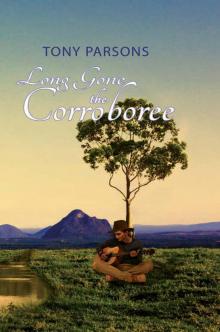 Long Gone the Corroboree
Long Gone the Corroboree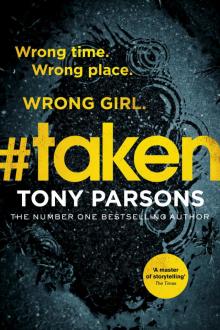 #taken
#taken The Family Way
The Family Way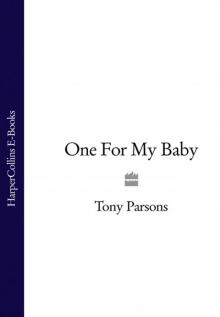 One For My Baby
One For My Baby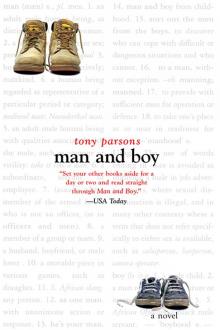 Man and Boy
Man and Boy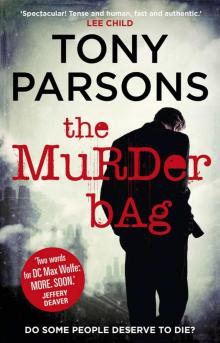 The Murder Bag
The Murder Bag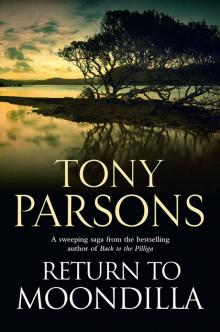 Return to Moondilla
Return to Moondilla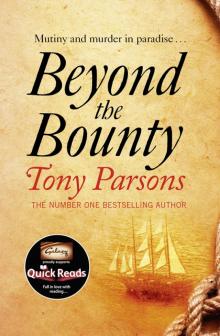 Beyond the Bounty
Beyond the Bounty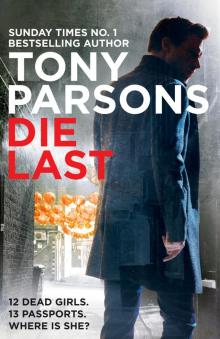 Die Last
Die Last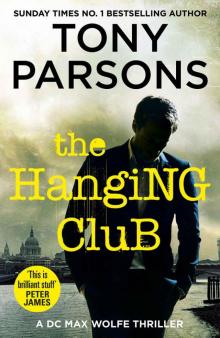 The Hanging Club (DC Max Wolfe)
The Hanging Club (DC Max Wolfe)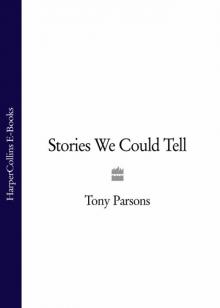 Stories We Could Tell
Stories We Could Tell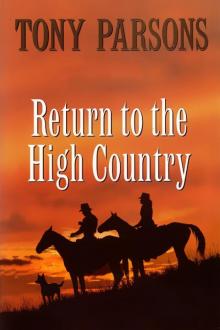 Return to the High Country
Return to the High Country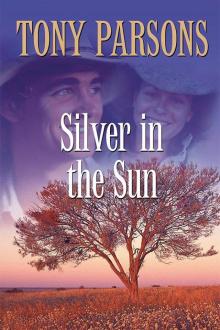 Silver in the Sun
Silver in the Sun My Favourite Wife
My Favourite Wife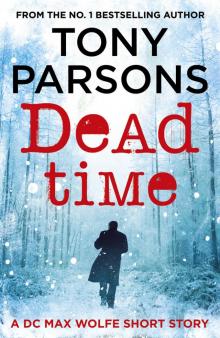 Dead Time
Dead Time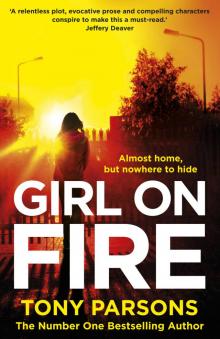 Girl On Fire
Girl On Fire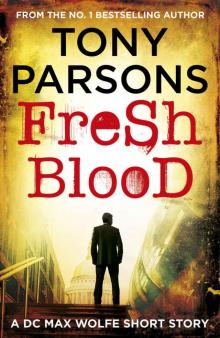 Max Wolfe 02.5 - Fresh Blood
Max Wolfe 02.5 - Fresh Blood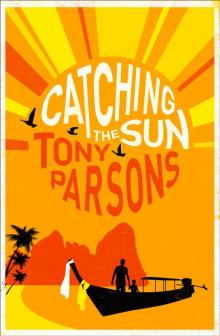 Catching the Sun
Catching the Sun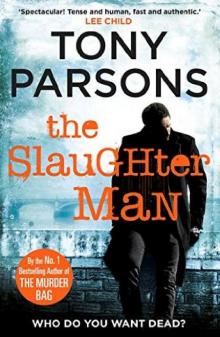 The Slaughter Man
The Slaughter Man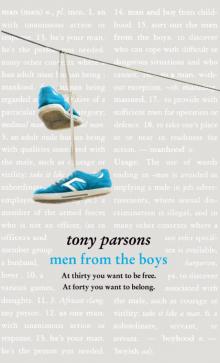 Men from the Boys
Men from the Boys Man and Wife
Man and Wife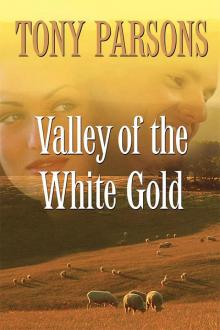 Valley of the White Gold
Valley of the White Gold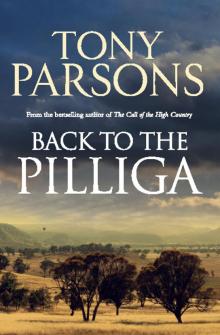 Back to the Pilliga
Back to the Pilliga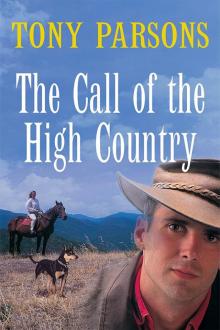 The Call of the High Country
The Call of the High Country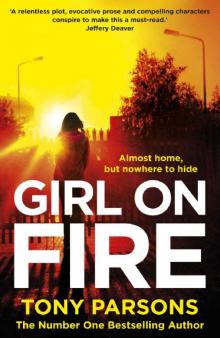 Girl On Fire_DC Max Wolfe
Girl On Fire_DC Max Wolfe